
Dr. Bhengu is an Independent Researcher on Afrikan philosophy, Afrikology…
Read Next
(Our serialization of Dr. Bhengu’s article, which we started in the last issue, continues…)
Prof. Herbert Vilakazi (2001), writing in the New Agenda journal (a South African Journal of Social and Economic Policy) of 2001 had this to say: “We must realize that what is called ‘economics’, as it is taught in our universities, is simply a reflection of the economic experiences of the White community, which in itself is an extension of the economic experiences of developed Western countries. The challenge for us in Africa, is to develop a new economics, which shall be a reflection of the economic experiences of the overwhelming majority of society, the African people…Our economics must begin with an accurate knowledge of the situation and needs of the overwhelming majority of Africans in rural and semi rural areas, and in the townships of urban areas”.
With Africans, culture is about how the past must interact with the future. It is about how social values are transmitted and individuals are made to be part of a society.
Therefore, culture among the Bantus is regulated by the philosophy of Ubuntu, which insists that the very identity of each person is bound up with others in a community of all. In a globalised world, our sense of Ubuntu must extend right across the planet. The more global the market, the more it must be balanced by a global culture of solidarity, attentive to the needs of the weakest.
Dalton (1975) describes capitalism as “…immoral, unjust and humanly degrading…Capitalism is insufficient since it produces unemployment, low wages, monopoly, business cycle crises and bankruptcies; it is transient since it will disappear just as feudalism and earlier systems disappeared, and for the same general reasons”.
Perhaps, this is what led Huntington (1996: 21) to say “the most important distinctions among peoples are not ideological, political or economic. They are cultural. Peoples and nations are attempting to answer the most basic question humans can face: Who are you? And they are answering that question in the traditional way human beings have answered it, by reference to the things that mean most to them. People define themselves in terms of ancestry, religion, language, history, values, customs, and institutions. People use politics, not just to advance their interests but also to define their identity. We know who we are only when we know who we are not and often only when we know whom we are against. Nation states remain principal actors in world affairs, and their behavior is shaped as in the past by the pursuit of power and wealth, but it is also shaped by cultural preferences, commonalities and differences”.
Marcel Mauss (1990; 76) argued that: “It is our western societies who have recently made man an ‘economic animal. But we are not yet all creatures of this genus. Among the masses and the elites in our society purely irrational expenditure is commonly practiced. It is still characteristic of a few of the fossilized remnants of our aristocracy. Homo oeconomicus is not behind us, but lies ahead, as does the man of morality and duty, the man of science and reason”
The Prestige Motive
Within the prestige worldview, someone who relates with others solely on the basis of the profit motive is seen as a potential source of evil to the community. But within the traditional African context, the prestige motive was based on the belief that it is through acts of generosity to the community that the individual will flourish. The prestige motive ensures that the community will exist in harmony when wealth is collectively enjoyed (Gefand 1981; Nyerere 1968, Senghor 1964, Kaunda 1966).
Traditionally, the profit motive was seen as a source of evil: “…in an African context it is very important to share with one’s neighbor – whoever does not share withholds the life force from another. Such a person confines oneself to the house and is unable to be a friend to others, thus poisoning the community atmosphere. Neighbors feel bad about such a person and feel that a misfortune is likely to befall him or her. Business enterprises will not flourish, property will be lost, or the family of the owners will be struck by sickness, death or anything” (Bujo 1998, 162).
This prestige motive helped to preserve the socio-economic equilibrium within the community because wealth became available to everybody. Avarice was one of the most detestable vices. Hence, the border between avarice and frugality is unclear in Africa, because saving money, for instance, could be taken as an excuse for refusing to offer necessary assistance to others. This explains why, even today, people in Africa do not hesitate to organize big feasts with relatives, friends and acquaintances and to spend money lavishly in order to keep human contacts as close as possible. The author himself does this occasionally.
Since the prestige motive puts emphasis on communal belonging and acceptability in economic relations, Mazrui argues that ‘this prestige motive in traditional societies raises serious economic problems’ for example, difficulties of trying to get people to save’. In this prestige, ’earnings are expended on entertainment and hospitality; on ostentatious weddings, expensive funerals and initiation ceremonies.
Defining the Theory of Afrikonomics Theory
The Background
The model, seeks to develop a unique inter-disciplinary, multi-disciplinary and trans-disciplinary research. It is unique in that everything in an African setting, unlike in the West, is interconnected and collective, and this alone distinguishes the role it has to play in global economic affairs.
This proposed epistemology is not necessarily African-centric or Afrocentric. It is a universal scientific epistemology that goes beyond both Afrocentricism and Eurocentricism, but seeks to contribute to the development of humanity. It recognizes all sources of knowledge as valid within their historical, cultural, social or economic contexts, and seeks to engage them into a dialogue that can lead to better knowledge for all. It recognizes people’s traditions as a fundamental pillar in the creation of such cross-cultural understandings in which the Africans can stand out as having been the fore-bears of much of what is called Greek or European heritage.
Definition of the term ‘Afrikonomics’
The word ‘Afrikonomics’ comes from the combination of the following two terms: Afrikology + Economics.
Afrikology = Of African continent and Africans both in the African continent and in the Diaspora.
Economics = This has its origin in the Greek word oikonomia, which means the art of household management. In studying the nature of this art, Aristotle undertook to examine what is probably the first economic issue to have been subjected to formal inquiry: in what sort of wealth getting activity did material needs become a desirable goal of human activity. For Aristotle, retail trade, as opposed to the household, which is exchange for the purpose of making money, is unnatural. The most unnatural activity, for Aristotle as subsequently for the Hebrews, moreover, is to demand interest of a loan. Is usury, as such, necessary and honorable for humans to undertake? While Aristotle’s was an ethical and moral question, it was answered by means of reasoned inquiry: concerning human relationships as they relate to the material environment.
Actually, economics, for the twenty-first century, is a broad but divided discipline, comprising dozens of schools of thought covering almost every aspect of human existence and spanning the political and philosophical spectrum.
Economics explains how people use scarce resources to meet unlimited demand. Some people like to think of economics as a study of supply and demand. Economic systems answer the questions: What to produce? How to produce? How to distribute?
Afrikonomics Theory is a ‘spirituality without borders’ that is inclusive and pluralistic. It holds a holistic worldview that emphasizes the mind, body and spirit that are interrelated and that there is a form of monism and unity throughout the universe. It attempts to create a worldview that includes both science and spirituality and embraces a number of forms of mainstream science as well as other forms of science that are considered fringe.
It is an economic theory that knows no color but strives for the betterment of our human and humanity. It seeks to achieve a triumph of the human spirit within the context of economics.
Afrikonomics Theory embraces African humanism, which is rooted in traditional values of mutual respect for one’s fellow kinsman and a sense of position and place in the larger order of things: one’s social order, natural order, and the cosmic order. African humanism is rooted in lived dependencies. Where life’s means are relatively minimal and natural resources are scarce, the individual person must depend on his or her larger community. African humanism is linked to larger discussions of “communalism” in Africa, though not to radical communalism. There is a certain “self-interest” among men and women but that self-interest is subordinated to communal well-being. Gyekye (1987) defines the concept of African humanism as: “a philosophy that sees human needs, interests, and dignity as of fundamental importance and concern. For, the art, actions, thought, and institutions of the African people, at least in the traditional setting, reverberate with expressions of concern for human welfare”. This he sees as the “fundamental concept in African socioethical thought generally”. This basic socioethical humanism is the underpinning of African socialism in the post-World War II period.
Julius Nyerere had this to say on African humanism: It is a humanism of our time, a humanism that clearly finds its roots in African authenticity, but which also moves to embrace universal concerns and concerns for the future of the universe. This humanism should also reconcile people among themselves on the basis of the principles of complimentarity and solidarity. It is equality and respect for human dignity; sharing of the resources, which are produced by our efforts; work by everyone and exploitation by none (Nyerere (1968) in Bhengu, 2006)
Therefore, the Afrikonomics Theory must be understood as an articulation of an African economic renaissance, for one cannot say “I am an African” whilst politically, economically, socially, culturally, etc is dependent on alien heritage. So, an attempt to infuse African metaphysics into economics has to be taken up, problematized, interrogated and given meaning.
It is an African approach that seeks to present market economy, which encompasses the philosophical, epistemological and methodological issues, all seen as part of the process of creating an African self-understanding, which is necessary if Africa is to emerge as a proud member of the global society to which it belongs.
In this sense, therefore, this is a process of re-awakening, consciousness raising and restatement by Africans tracing the origins and achievements of their civilizations with a view to developing new economic epistemologies of knowledge production based on African lived experiences in their global implications. If we are to move forward in history, self-understanding is crucial to organize ourselves to move forward in history and cultural experiences. For without self-understanding, an African remains incomplete.
The reconstruction of our understanding of ourselves as Africans and how our relationships with the rest of humanity have led us where we are in the context of a global historical process is crucial. It is a hermeneutical problem of self-understanding in which we have to position ourselves as authentic human beings who have made a contribution to human civilization, and justifiably so since Africa is the homeland of the world’s cradle of humankind. In a word, it is a hermeneutic task in which we have to foreground ourselves in the context of reconstructing our historical economic consciousness. It has to be hermeneutical because what is at issue here is not just “knowledge” that science claims to be able to produce through ‘reason’, but a whole way of looking at the world that involves the relation between the temporal and the spiritual world.
Therefore, this theory deals with African economic philosophy and economic practice, and seeks to liberate Africa from “economic occupation”.
Pillars of the Afrikonomics Theory
(a). It believes and maintains that any harmful action against another individual is a threat to the whole society; a restriction on individual’s economic activity places severe constraints on the economic welfare of the whole society; if the individual prospers, so does his/her extended family and the community; an individual could prosper so long as his/her pursuit of prosperity does not harm or in conflict with the interests of the community; the society’s interests have to be paramount; if an individual’s pursuit of prosperity conflicts with society’s interests, the State must intervene.
(b). It seeks to move our society forward to a higher and reconciled form of society, in which the quintessence of the human purpose reasserts itself in a modern, free and democratic economic context and to create a new society that is humane, just and harmonious.
(c). It believes that an action is good if it preserves the totality, fullness and the harmonious life of a human person; an action is bad if it has a more or less decided tendency to break into and narrow the totality and fullness of humanism (Ubuntu). Therefore, we believe that for Africa to have universal power, it would have to have a strong African-oriented ‘substantivist’ economic philosophy that is culturally rooted and grounded in an African idiom.
The Basic Economic Law of Development
Development must be concerned with the maximum satisfaction of the constantly rising material and cultural requirements of the whole of society through the continuous expansion and perfection of our African humanism.
Therefore, the law of balanced development of the national economy can yield the desired result only if there is a purpose for the sake of which economic development is planned. This purpose is inherent in the basic economic law of African humanism. The law of balanced development of the national economy can operate to its full scope only if its operation rests on the basic economic law of African humanism.
Instead of maximum profits – there must be maximum satisfaction of the material and cultural requirements of society; Instead of development of production with breaks in continuity from boom to crisis and from crisis to boom – there must be unbroken expansion of production.
The Philosophy of NTU as a Guiding Force
NTU is the “Causative Force”. It is the power that is responsible for all creation, on earth and in the universe.
Mu+Ntu = Man (Umuntu).
Mu- represents a human person
Ntu- represents an abstract – an element of godliness in a human person.
Therefore, umuntu, not a black person as often interpreted, but any human person on the planet, is endowed with the divine attributes: Intellect, Wisdom, Justice, Creativity, Compassion, Love, etc. that make him to be distinctly different from other created beings. He/she consists of the: spirit, soul and body. This is a three-fold principle of Muntu (man).
All these elements constitute what is called uBuntu, which teaches us that we are one moral universe, and our shared moral sense makes us recognize our duty to others.
The Need for the Recovery of African Identity
According to Mbeki, the problem of “rapacious and venal individualism”– which the neo-liberal policies of his government have often been accused of exacerbating, will only be resolved by a rediscovery of “African identity” and the building of a society that is “new not only in its economic arrangements, but also in terms of the values it upholds”, namely the “Ubuntu value system” (Mbeki 2007).
Again, speaking at the eighth annual Steve Biko Memorial Lecture in Cape Town in September 2007, Mbeki provided a somber and rather frank assessment of disturbing levels of fragmentation and dysfunction in our post-apartheid society, and said,
“Our society has been captured by a rapacious individualism which is corroding our social cohesion, which is repudiating the value and practice of human solidarity, and which totally rejects the fundamental precept of Ubuntu” (Mbeki 2007: 16).
Subscribe now for updates from Msingi Afrika Magazine!
Receive notifications about new issues, products and offers.
What's Your Reaction?
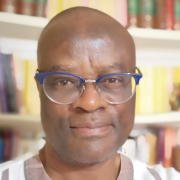 PIN IT
PIN ITDr. Bhengu is an Independent Researcher on Afrikan philosophy, Afrikology and Egyptology. He is an established and experienced author, self-publisher and managing director of Phindela Publishing Group & Editor-in-Chief of INQABA Journal, a quarterly publication that specializes on Afrikology. He describes himself as an Afrikan of Nguni (Zulu) extraction, but then a global citizen. Black, but being in total fusion with the world, in sympathetic affinity with the Earth... “I am black not because of a curse, but because my skin has been able to capture all cosmic eluvia. I am truly a drop of the sun under the earth.” He says.








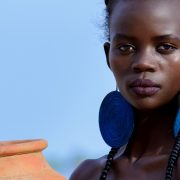





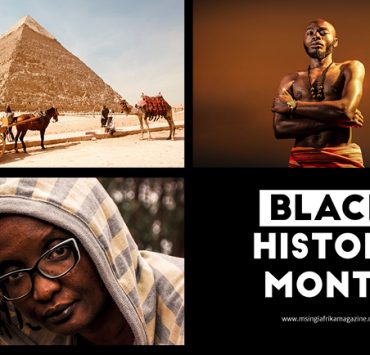
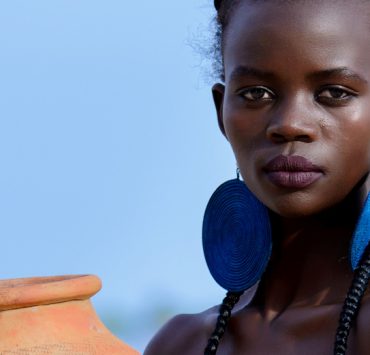
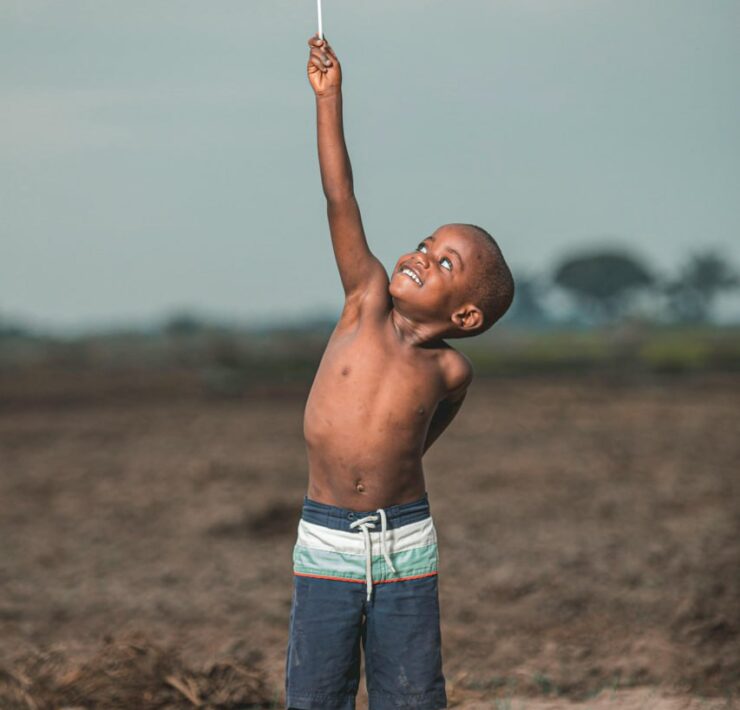
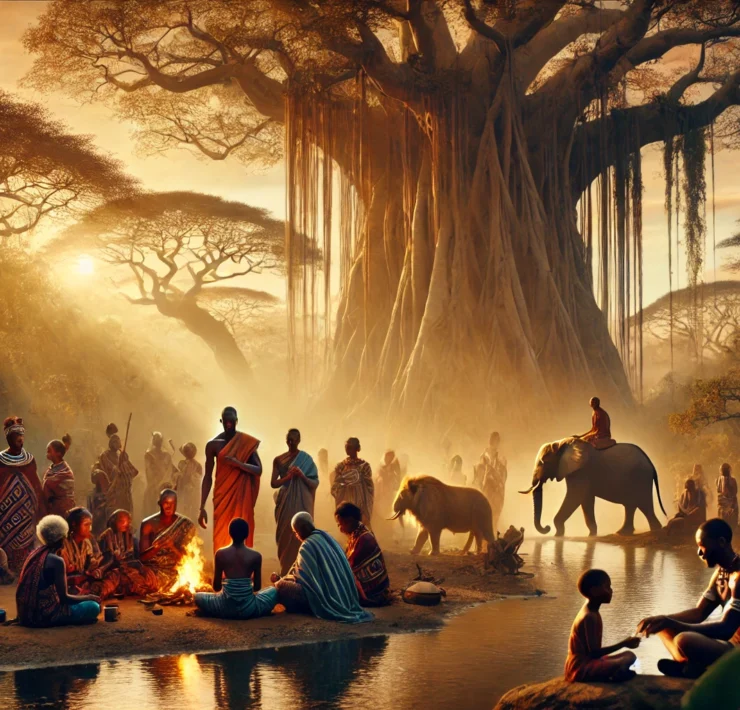
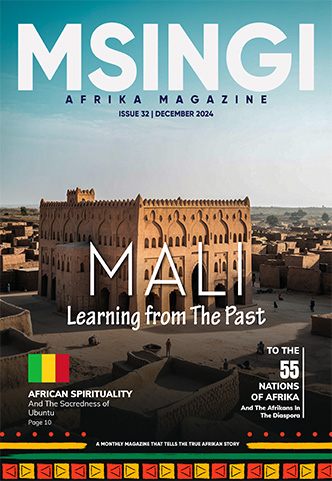
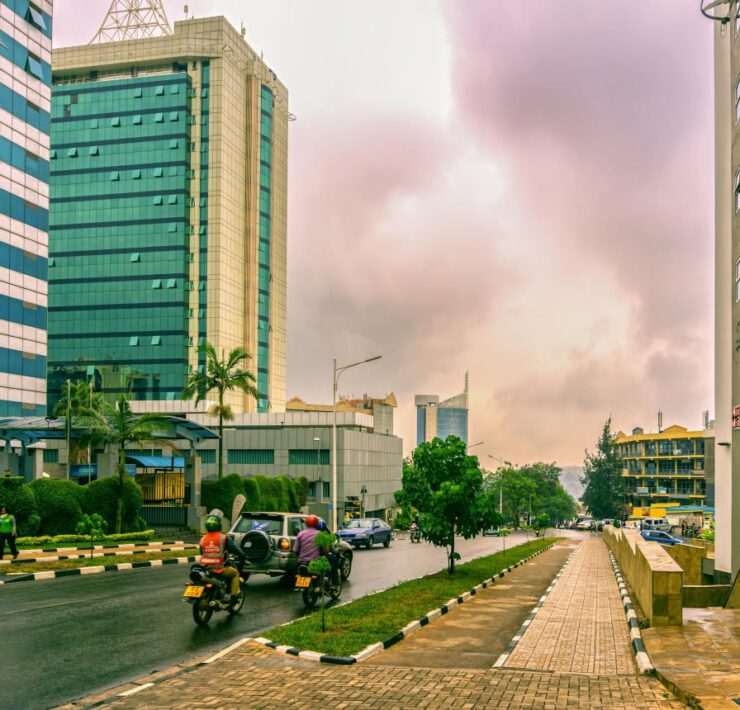
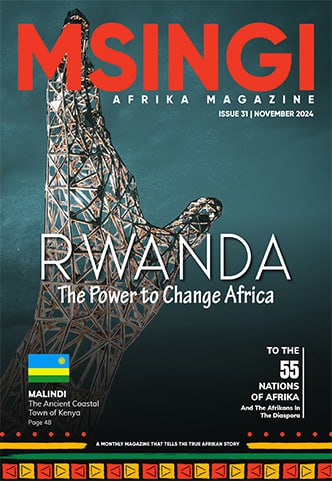
A very insightful and interesting perspective of economics. Living in a western country, I realized just how different our aspirations are as a people from the West, our concepts are so different. Indebtedness is encouraged, actually, it’s wat qualifies you for more indebtedness, which is absolutely contrary to our values and believe. Unfortunately, that’s is the kind of economic models that we are encouraged to accept and tie the destinies of millions of our people to.
It’s a common thing in the US to see a man or woman living in his/her Mercedes Benz car or some high end vehicle, they just became homeless cos they could not pay mortgage because they just lost their jobs.
I which this kind of analysis gets to the right people in authority in Africa
Thank you for your feedback. It really is our prayer that more people would begin to understand issues like what you have just shared. Too much of what the world has created for itself is nothing else but a trap designed to keep people in bondage. It is heartbreaking. Interestingly enough, we were just discussing the issue of homelessness this afternoon and we are asking the question, why, with such great resources in Afrika, do we have the same issue arising here and what do we do about it now before it gets to the levels of the so-called ‘developed’ world.
Family has always been so important to Afrikans, we need to restore our concern and compassion for one another in some way. Blessings bro.